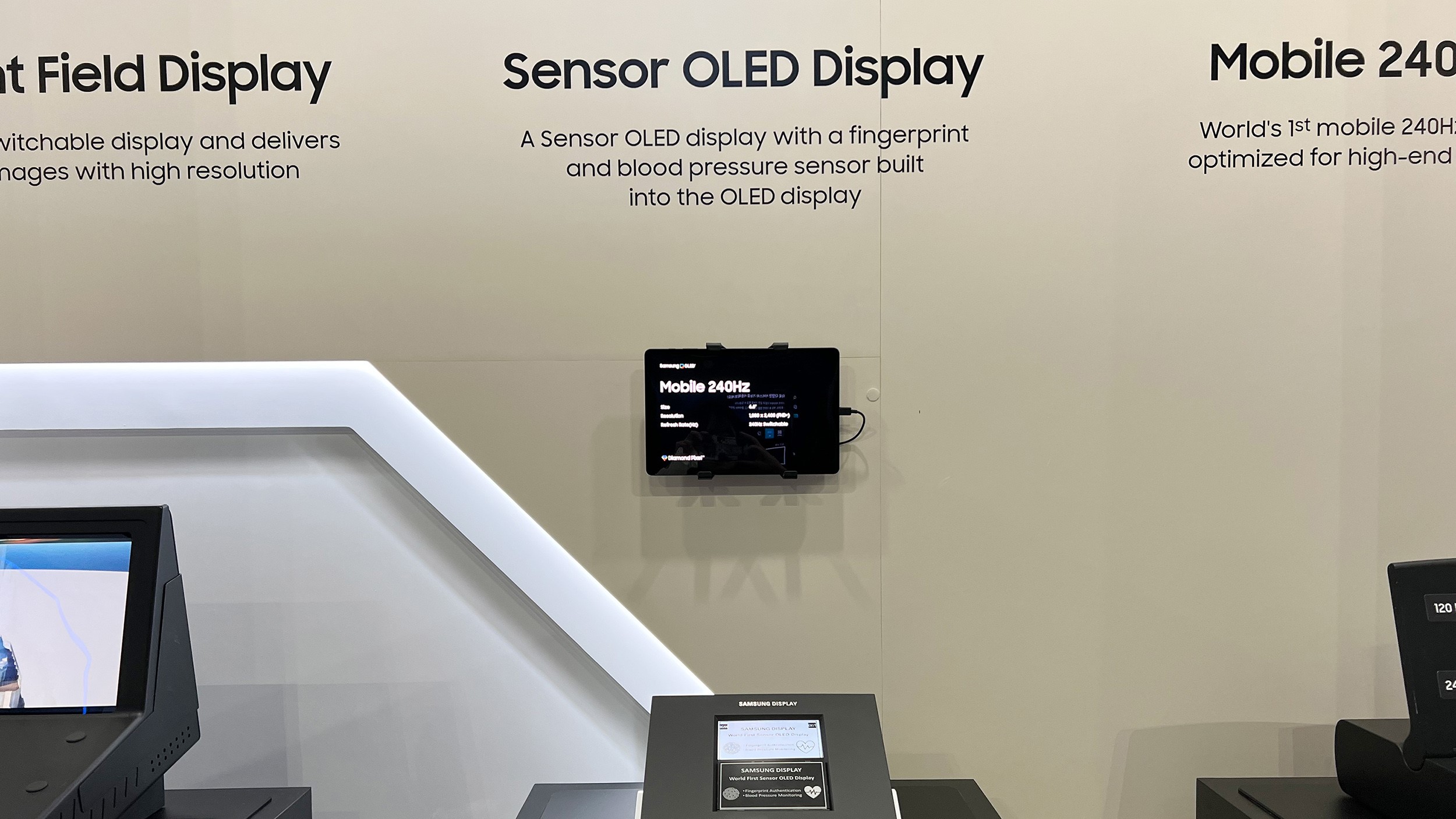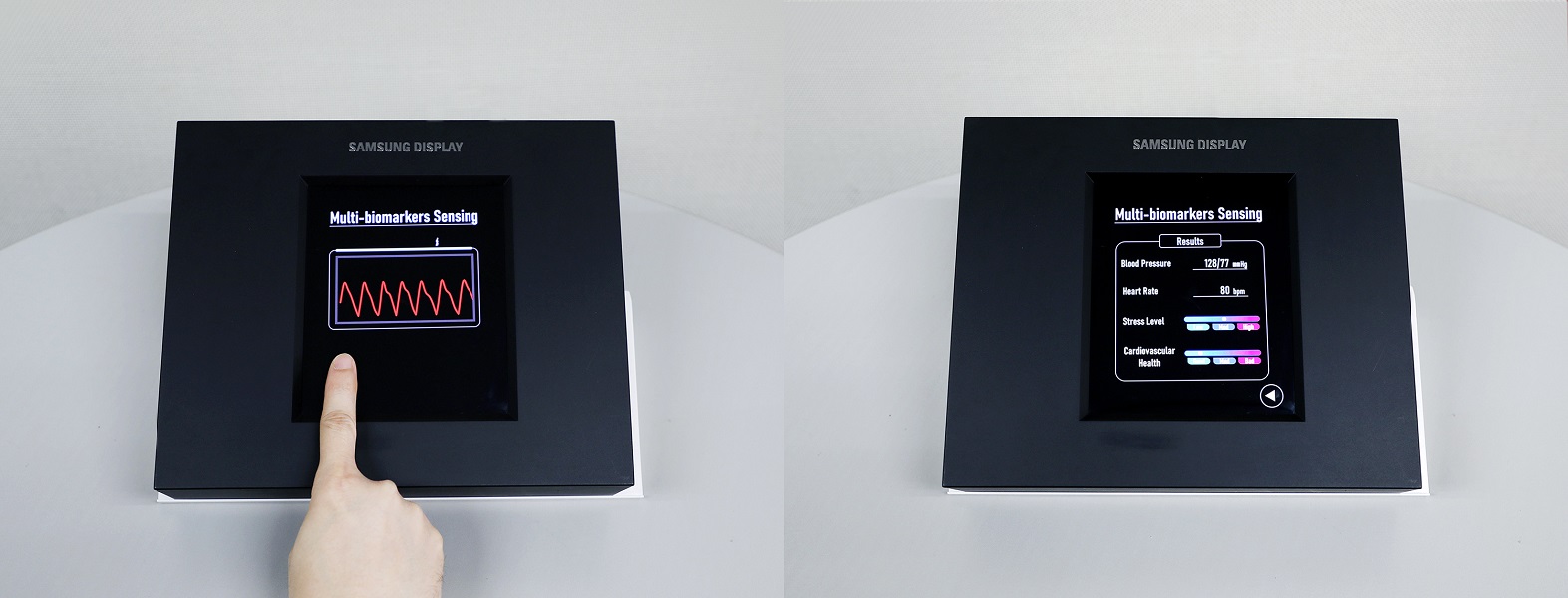Samsung's new OLED display tech has a built-in blood pressure sensor
Keeping a close eye on your heart health.

What you need to know
- Samsung Display unveils a fingerprint Sensor OLED display for monitoring a person's heart rate, blood pressure, and stress levels.
- A light-sensing organic photodiode (OPD) is embedded within the display, using OLED light to gather your cardiovascular information.
- Samsung will also resurface the "Rollable Flex" technology for rollable phones at SID Display Week 2023.
SID Display Week 2023 is underway, and Samsung Display has taken the wraps off a new biosensor display in a way the mobile industry has yet to see. According to a Samsung Display press release, the company is set to unveil a Sensor OLED display that can recognize a user's fingerprints anywhere on the display. Samsung states this new display can measure a person's heart rate, blood pressure, and stress levels from the touch of two fingers.
Technically speaking, Samsung's Sensor OLED display has a light-sensing organic photodiode (OPD) embedded within the display itself. This new development does away with a smartphone's fingerprint sensor today where it's a separate module entirely beneath the initial panel.

OLED light is used to provide these critical cardiovascular measurements to users. Samsung states the light is "reflected differently depending on the contraction and relaxation of the blood vessels inside the finger." When the light returns to the panel, the OPD collects it and converts the data into information we can understand health-wise.
Samsung has continued to show a health-oriented focus for its devices, like its latest update planned for the Galaxy Watch 5. The watch's new irregular heart rhythm notifications recently passed through the FDA, clearing it for consumer use. Using a person's fingerprint and OLED light on their phone's screen to determine their heart health would be a welcome feature in the industry as users could monitor their health without needing a watch if they so choose.
Samsung Display is set to unveil a few more projects in development, such as the "Rollable Flex." The screen would roll and unroll over an O-shaped axis, much like an ancient scroll. A large display could expand from 49 mm to 254.4 mm. This wouldn't be the first time the company has shown off a rollable display, although Samsung has had an interesting past with the idea of a "rollable phone." Back in November, Samsung was reportedly no longer interested in manufacturing a rollable phone, which reminded us of the long-since canceled LG Rollable.
With its return to SID 2023, it'll be interesting to see where the Korean company goes from here.
Alongside this, Samsung will showcase "Flex In & Out." Using a Galaxy Z Fold 4-like device as an example, the device would be able to fold in and out 360 degrees and could pave the way for thinner foldables. Finally, the company is showing off other concepts, such as the Flex Hybrid that was shown off at CES 2023, the Slidable Flex Solo, and the PC-sized Flex Note.
Be an expert in 5 minutes
Get the latest news from Android Central, your trusted companion in the world of Android

Nickolas is always excited about tech and getting his hands on it. Writing for him can vary from delivering the latest tech story to scribbling in his journal. When Nickolas isn't hitting a story, he's often grinding away at a game or chilling with a book in his hand.
